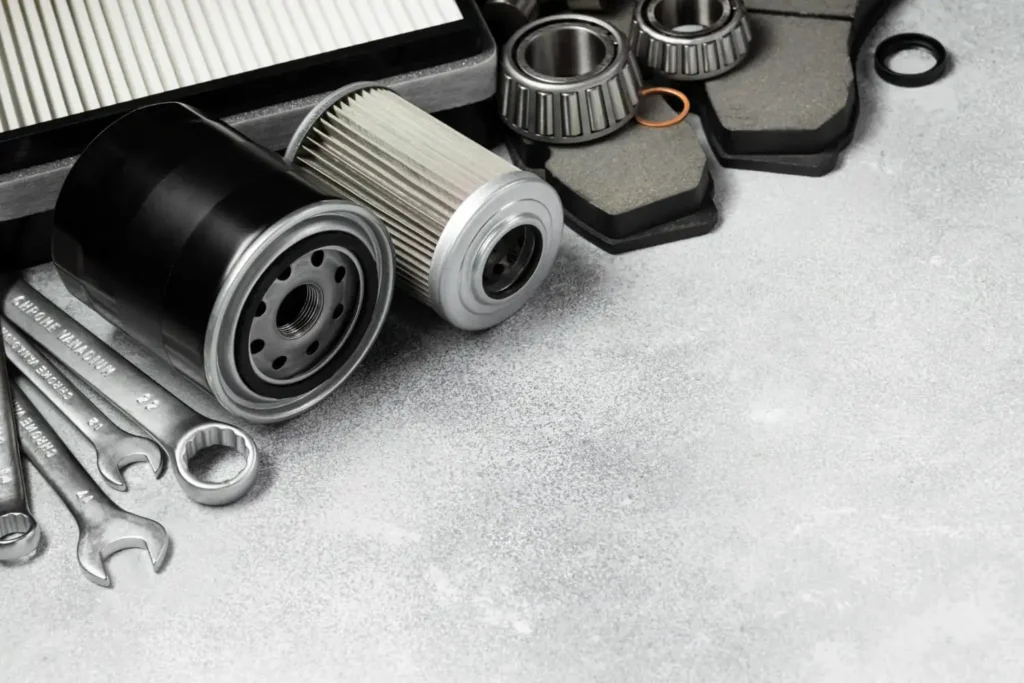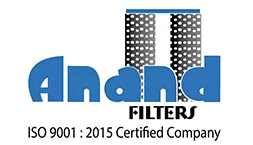
What Is a Hydraulic Filter Element and Why It’s Crucial for Your Machinery
Hydraulic filter is a kind of hydraulic filter system which uses the porous filter element which forces the hydraulic fluid to go through to get rid of the harmful particles. Whether in the mining sector, wind turbines, buildings construction, or agriculture industry, the following is true everywhere: Hydraulic systems are necessary to operate safely and very effectively.
Numerous varieties of hydraulic filter elements are available in the market, each has its unique benefits and drawbacks.
The problem is that hydraulic systems are highly vulnerable to pollution. The filter element traps contaminants, preventing them from reentering the fluid stream and damaging downstream equipment. Even small particles can result in costly failures by causing severe wear.
Reactive chemicals, water, and dirt are examples of contaminants. Hydraulic filters must remove even the tiniest particles by being appropriately sized for their micrometer-scale size.
What Is a Hydraulic Filter Element?
Hydraulic filter elements are essential parts of industrial filtration systems, keeping hydraulic fluids clean and free of impurities. These components efficiently capture impurities, trash, and particles, guaranteeing the seamless and effective functioning of hydraulic systems and equipment. In industrial applications, hydraulic filter elements are essential for prolonging machinery life, lowering maintenance costs, and preventing damage to hydraulic components.
Hydraulic filter elements come in a variety of forms according to where they are in the system:
Inline filters: An inline filter is a filter that is put straight into a line, such as a pipe or tube, to clean the fluid or gas moving through it.
Return line filters: These filters usually have a very low pressure. They can be placed within the tank or along the return line, gathering impurities from the fluid as it flows back to the reservoir.
Suction filters: Suction filters, another kind of low-pressure filter, is positioned at the pump’s inlet section to guarantee that no impurities get inside.
Pressure filters: Positioned after the pump, these filters protect costly downstream components. Thanks to their high-pressure capacity, pressure filters can eliminate internal pollution produced within the system, protecting individual components.
How Does a Hydraulic Filter Element Work?
By passing hydraulic fluid through a very thin filter element, hydraulic filter removes the dangerous particles from the hydraulic system. The filter element protects upstream equipment by trapping impurities before they can enter the fluid flow.
These components are made from a variety of materials, each with special advantages:
Microglass Filters: Microglass hydraulic filters offer a higher filtering quality. Resin is randomly arranged within micro-fiberglass to form a multi-layer composite during their creation. Due to its finer weave and many layers, this filter is more effective at catching tiny particulate matter.
Cellulose Filters: In the hydraulic system, cellulose filter is the most common type of filter element. They are made by densely weaving natural cellulose fibers to create a porous substance. Cellulose filters are capable of removing both liquid and solid impurities from hydraulic fluids.
Wire Mesh Filters: These steel filters are typically used for surface cleaning. Due to their wire size and their construction limits, it cannot filter out extremely small kind of particles. However, wire mesh filters primarily benefit machinery with their longer lifespan because users can clean and reuse them.
Why Is a Hydraulic Filter Element Crucial for Your Machinery?
Selecting the appropriate hydraulic filter element is essential for the well-being of your machinery and goes beyond simple best practices. Here’s why:
- Hydraulic filters capture impurities before they reach vital parts like pumps and valves, preventing damage and prolonging their lives.
- Clean hydraulic fluid ensures smooth operation of components, lowering wear, heat production, and friction, eventually improving system efficiency and lowering operating costs.
- Filters shield hydraulic components from harm, reducing the chance of malfunctions and expensive repairs. This lowers downtime and boosts overall production.
- Although filters are an extra expense, they save a lot of money by lowering downtime, minimizing costly repairs, and increasing system performance.
Signs Your Hydraulic Filter Element Needs Replacement
You can replace the hydraulic filter element before it’s too late by keeping an eye out for these warning signs:
- Your hydraulic system may operate more slowly, produce less, or lack power overall.
- A blocked filter restricts fluid flow, increasing the pressure differential across the filter. Pressure gauges or pressure drop indicators (PDIs) can be used to monitor this.
- A black, dirty, or contaminated fluid indicates the filter isn’t working correctly.
- A blocked filter may cause the system to work harder to avoid overheating and possible damage to hoses, seals, and other parts.
How Often Should You Replace a Hydraulic Filter Element?
According to the first, filters should be changed according to the recommendations of the equipment manufacturer, which are usually based on service hours. The disadvantage of that strategy is that it might not be necessary to modify the filters at that moment.
If they need to be changed, you have wasted some of the filter’s usable life; if they are past due, you have jeopardized your machine’s efficiency and run the chance of an untidy aftermath of a blocked filter.
You can alternatively use an element condition indicator. The indicator will measure the pressure drop of the filter. The indication indicates that you need to replace the filter when it reaches a critical level, such as 2 bar for a filter with a 3 bar pressure drop while it is at capacity. Technicians replace the filters when the element indications show that the filter is approaching capacity.
Keep in mind that utilizing high-quality hydraulic oil filters from reputable manufacturers like Anand Filters may greatly increase the performance and lifespan of your hydraulic systems.
Choosing the Right Hydraulic Filter Element
Compatibility with your hydraulic system is critical while searching for the best replacement filter element. Finding a suitable filter element is only one aspect of this; another is ensuring the filter element satisfies the system’s flow rate, pressure, and contamination retention requirements. The following should be taken into account when choosing a replacement hydraulic filter element:
- Choosing the right filter element requires understanding the kinds and concentrations of pollutants in the hydraulic fluid.
- Find an ISO code (cleanliness level) required for the system’s most sensitive component.
- Select a rating based on how sensitive your system is to contamination.
- Verify that the element allows for enough, unimpeded fluid flow.
Experts recommend choosing an industrial filter supplier that provides OEM filters. The OEM filters are the original products made and sold by the same company, as the name suggests.The OEM filters are the original products made and sold by the same company, as the name suggests.
“Factory original” is another, more familiar phrase used to describe OEM items.
Aftermarket filters are made by outside manufacturers, which sets them apart from OEM filters. Manufacturers design them to replace the original factory filters and allow their use with items made by other firms.
Common Mistakes to Avoid
Using a high-quality hydraulic filter element becomes useless if you make frequent maintenance errors:
- Using the incorrect size or type: Always ensure the filter element satisfies the system’s requirements.
- Postponing replacements: Ignoring filter updates can cause irreversible harm to the system.
- Ignoring warnings or pressure drops: Pay attention to early warning indicators.
Only when properly maintained and updated will a dependable hydraulic oil filter guarantee that your system remains clear of contaminants.
Conclusion
Despite its tiny size, the hydraulic filter element significantly impacts the longevity, performance, and health of your gear.
Select premium filters, such as those provided by Anand Filters, and adhere to preventive maintenance plans to protect your hydraulic systems from expensive malfunctions and inefficiencies.
Clean hydraulic oil is crucial; monitor your filters and replace them when necessary. Your machinery’s future depends on it!

